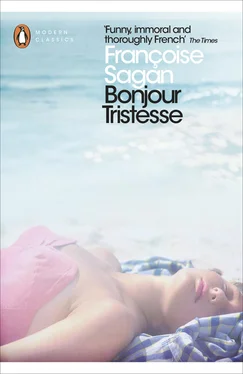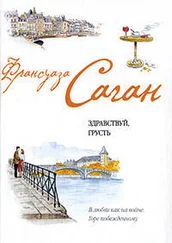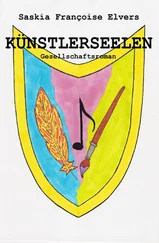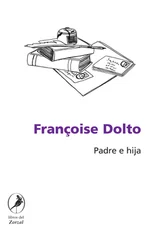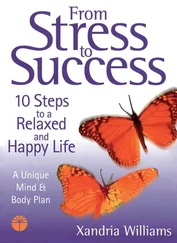We turned round and swapped partners. I found myself in front, beside Luc, walking in step with him along the avenue with its russet tints, and we must have had the same thought, for he shot me a questioning, almost brutal glance.
‘Well, there we are,’ I said.
He shrugged his shoulders sadly; it was an imperceptible movement that somehow gave his expression a lift.
He took a cigarette from his pocket, lit it as he walked and handed it to me. Whenever anything bothered him, he had this trick up his sleeve. Yet he was a man completely devoid of any nervous mannerisms.
‘That guy knows about us,’ he said.
He said it thoughtfully, with no apparent apprehension.
‘Is that serious?’
‘It won’t take him long to seize the opportunity of consoling Françoise. I should say, though, that consolation in this case won’t necessarily lead to very much.’
For a moment I admired his male self-confidence.
‘He’s a harmless moron,’ he said. ‘He’s a friend of Françoise’s from university. Do you get the picture?’
I got the picture.
He added: ‘It troubles me insofar as it will cause Françoise to be hurt. The fact that it’s you …’
‘Obviously,’ I said.
‘It would trouble me on your account too if Françoise were to hold it very much against you. She can do you a lot of good, can Françoise. She’s very reliable as a friend.’
‘I haven’t any reliable friends,’ I said sadly. ‘I don’t have anything that’s reliable.’
‘Are you unhappy?’ he asked, taking my hand.
I was touched for a moment by this gesture and by the apparent risk it made him run, then I was filled with sadness. Here he was, holding my hand, and we were walking along together with Françoise looking on; but as far as she was concerned it was Luc, the tired man, who was holding my hand. She no doubt thought that he wouldn’t have done that had he had a bad conscience about me. No, he wasn’t running much of a risk. And he was indifferent to risk. I squeezed his hand: it was him, of course, just him. I never ceased to be amazed that the sheer fact of his existence was enough to fill my waking moments.
‘I’m not unhappy,’ I replied. ‘I’m not anything.’
I was lying. I would have liked to tell him that I was lying and that the truth was that I needed him, yet when I was with him, all that seemed unreal. There was nothing, there had been nothing but a pleasant fortnight, and fancies and regrets. Why was I so heartbroken? ‘Sad mystery of love,’ I thought derisively. In fact I was annoyed with myself, for I knew that I was strong enough, free enough, gifted enough to be happy in love.
Lunch lasted a long time. Looking at Luc upset me. He was handsome and intelligent and weary. I didn’t want to part from him. I made vague plans for the winter. When he left me he told me that he would phone. Françoise added that she would phone too, about taking me to see someone or other.
Neither of them rang me. Ten days went by. The very name Luc was becoming burdensome to me. Finally he phoned to say that Françoise knew everything and that he would get in touch with me as soon as he could, but right now he was up to his eyes in work. His voice was gentle. I stood stock-still in my room, not really understanding. I was due to have dinner with Alain, but he could do nothing for me. I felt destroyed.
I saw Luc twice in the following two weeks, once in the bar on the Quai Voltaire and once in a hotel room where we found nothing to say to each other, either before or after. Everything tasted of ash. It’s always curious to see the extent to which romantic stereotypes are corroborated in real life. It dawned on me that I was definitely not cut out to be the cheerful little accomplice of a married man. I loved him. I should have thought of that, or at least thought about what love might be like, this obsession, this painful lack of satisfaction. I tried to laugh. He didn’t respond. He spoke to me gently and tenderly, as if he were going to die … Françoise had been very hurt.
He asked me what I was doing with myself. I replied that I was working, I was reading. In fact, whenever I read or went to the cinema, it was only with the thought that I would be able to talk to him about the particular book, or about the film whose director he had told me he knew. I was desperately seeking for bonds between us, bonds other than that rather sordid hurt we had inflicted on Françoise. There weren’t any other bonds, yet it never occurred to us to feel remorse. Nor could I say to him: ‘Remember how it was.’ That would have been cheating and it would have scared him off. I couldn’t tell him that I saw, or thought I saw, his car everywhere in the street, or that I repeatedly started to dial his telephone number without completing it, or that I feverishly questioned my landlady whenever I came in, or that everything led back to him and that I utterly resented myself for it. I was entitled to nothing. But all the same, for me at that moment, ‘nothing’ amounted to his face, his hands, his tender voice, all that unbearable past … I was losing weight.
Alain was kind, and one day I told him everything. We used to walk for miles and he would discuss my passion as if he were discussing something from literature, which allowed me to take a step back and talk about it myself.
‘But you know perfectly well that all this will come to an end,’ he would say. ‘You know that in six months or a year you’ll be making a joke of it.’
‘I don’t want to,’ I would say. ‘It’s not only myself I’m arguing for, it’s everything we’ve been together. It’s Cannes and our laughter and the harmony there was between us.’
‘But that doesn’t stop you from knowing that one day it’ll no longer matter.’
‘I know that very well, but I don’t feel it. And I don’t care. It’s what’s here and now that matters, that’s all there is.’
We walked and walked. He would come back with me in the evening as far as the residence and would shake my hand gravely and when I went in I would ask the landlady if Mr Luc H. had phoned. She would say ‘No’ and smile. I would lie down on my bed and think about Cannes.
I would say to myself: ‘Luc doesn’t love me,’ and it gave me a dull little pain in the region of my heart. I would repeat it again and the pain would return, sometimes just as intensely. Then it seemed to me that I had moved on a bit: the very fact that this little pain was at my disposal, ready to respond to my call, armed to the teeth, whenever I summoned it, meant that it was mine to do with as I pleased. I would say: ‘Luc doesn’t love me,’ and this amazing thing would happen. But even if I had the pain more or less at my beck and call, I couldn’t prevent it from resurfacing unexpectedly during a class or at lunch, taking me by surprise and causing me distress. There were other things I couldn’t prevent either: the daily, perfectly understandable sense of boredom, a larva-like existence in the rain, my fatigue in the mornings, uninspiring classes, conversations. I was suffering. I told myself that I was suffering, I said so with curiosity, with irony, any way at all, rather than face up to the woeful evidence of an unhappy love affair.
What was bound to happen did happen. I saw Luc again one evening. We went for a drive in his car to the Bois. 31He told me he had to go to America for a month. I said that was interesting. Then the truth hit me: a month! I reached for a cigarette.
‘When I get back, you’ll have forgotten me,’ he said.
‘Why would I?’ I asked.
‘My poor darling, it would be better for you that way, so much better …’ And he stopped the car.
I looked at him. He looked strained and very sad. That showed he knew. He knew everything. He was no longer just a man I had to humour, he was also a friend. All at once I clung to him. I laid my cheek on his cheek. I watched the shadows of the trees and heard my voice saying the most incredible things:
Читать дальше
